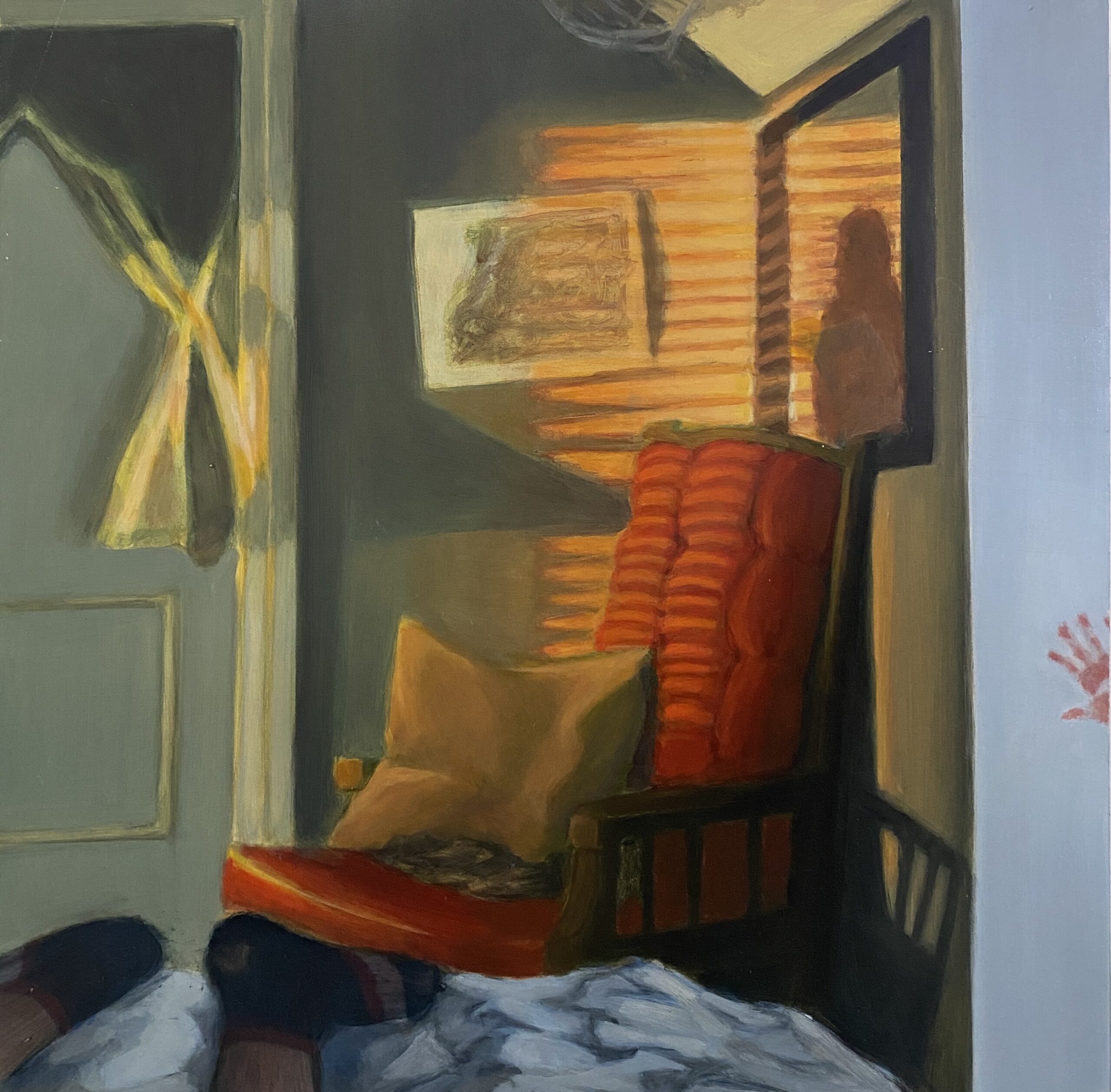I don’t write. But when I write. It doesn’t feel like writing. It starts as a whim. Periods in between fragments of thoughts. Kaveh Akbar said he uses out-of-place periods throughout his poems deliberately as a way to decolonize the usage of English punctuations. I sometimes. Think of that.
I don’t write. But when I do. I am. Interrupted. By my cat. By water pipe bursting in the freezing Wisconsin weather. I get video calls from uncles in New York City who threw away their Bangladeshi passports into the terminal trash can. No passports. No chains to tie you back to your land of origins that couldn’t keep you. Youtube Ads: Wayfair. ASMR podcasts.
I think writing often gets conflated into a rhetoric of writing that’s worth the time. Worth the consideration of editors. Worth the money to pay to read. My mom, a lesser-known Bangla fiction writer, once threw away her manuscript of a short story into the blue and yellow fire on the stove in our kitchen, because my dad, an old-school editor, critiqued her story. We are a family of whims.
If writing isn’t worth anybody’s time, why write? That rhetoric is harmful. It feeds into a capitalistic mindset. It shuts down voices that never rose because their owners were already told it’s a waste of time.
My partner tells me writing is like a t-shirt. There could be crappy ones with lots of things on them. Or, it could be plain and just do the job just fine. If writing is a t-shirt, I think mine often gets trapped between closing doors made of time and commitment. I am constantly sewing out of a mess. Robert Yagelski says writing is an ontological act. An act of being. I could push that idea a little bit ambitiously and say writing is an act of becoming. The self becomes a ripple against the surface of the world’s water.
To go back to that t-shirt metaphor, the sadness of writing is that just like a t-shirt, written text is a physical thing. And the moment it’s created we start to get obsessed with its worldly value. What can it do? Give me a passing grade? Get me published into a journal? Get me tenure? Yagelski is right: “the text serves the physical manifestation of the writer’s ability and thus the experience of the act of writing is ignored.”
Ross Gay shares that a lot his writing life is about loosening what he knows, or what he thinks he knows. I think I relate to that. Quite often I obsess about writing, like it should be this or that or it should serve a eurocentric purpose. Is my English good enough? Like my t-shirt, does it seem to give me access to social situations where I get approval of the white folks? Approval of the folks of color white-adjacent or colonized like me? I want to wear a loose t-shirt. But the one I manage to wear, I can’t tell if it fits me or it makes me feel it fits me.
I don’t write. But when I do I obsess about a purpose.
Sometimes the purpose relates to me as the writer.
Most times it feeds into a narrative.
A narrative where the writer is a nobody without their writing.
SUJASH PURNA is a Bangladeshi poet and photographer, pursuing a PhD in English- Composition and Rhetoric at the University of Wisconsin-Madison. He is the author of Epidemic of Nostalgia, Simple Fantasies (Finishing Line Press), In Love with the Broken (Bottlecap Press) and Azans for the Infidel (Mouthfeel Press). His photography can be found on Instagram @poeticnomadic
The art that appears alongside this piece is by AMY RENEE WEBB.
